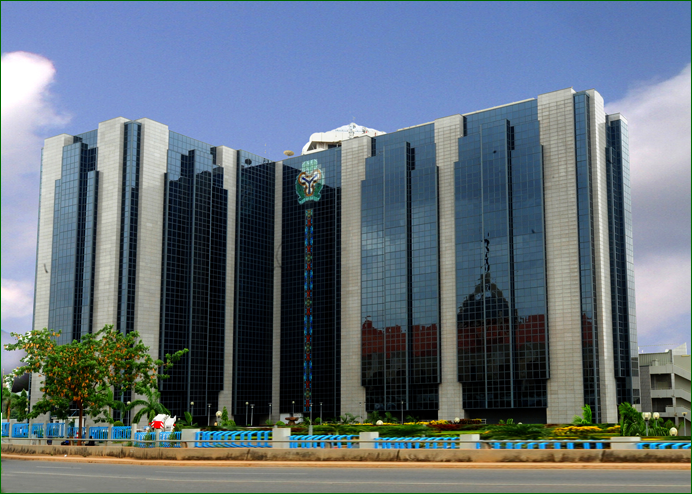The Central Bank of Nigeria (CBN) has launched a flagship research initiative, the Knowledge Acceleration Programme (KAP), as part of broader efforts to reposition itself as a centre of economic thought leadership and strategic policy development.
The programme marks a significant shift in the apex bank’s role from being viewed merely as a guardian of foreign reserves and currency stability, to becoming a key driver of multidisciplinary research and innovation in economic policy.
Applications for the KAP opened last month, with the thematic workshops scheduled to take place in Abuja over three phases this month. The programme is designed to convene leading Nigerian researchers, academics, and policy experts to develop actionable policy insights through collaborative engagement with the Bank.
In a circular announcing the initiative, director of the CBN research department, Aderinola Shonekan, said the programme would provide an interactive platform for selected applicants to develop their research ideas through peer engagement and feedback from technical experts.
The goal, she explained, is to transform research proposals into working papers that can both inform macroeconomic management and support the CBN’s strategic decision-making process.
CBN governor, Mr Olayemi Cardoso, recently described the programme as a bold step toward expanding the intellectual mandate of the institution. Speaking on the vision behind the initiative, he said the CBN must move beyond its traditional focus on exchange rates and monetary stability.
While acknowledging that currency management remains a vital function, he stressed the need to broaden the Bank’s developmental role. “I’ve always felt that the Central Bank has fallen a little bit behind with respect to some of the things it should be doing, beyond just the naira and kobo and the dollars and cents that we’ve all been involved in and spent so much time talking about,” Cardoso said.
He noted that public perception has often cast the Bank in a narrow light—concerned only with daily movements in exchange rates and foreign reserves. “You would be forgiven for thinking that that is all the Central Bank is meant to do,” he added. “But it must be more than that.”
To reposition the Bank as a thought leader, Cardoso said the KAP initiative is being structured not just for internal capacity building but to also incorporate a wider range of stakeholders. He said the CBN wants to work closely with Nigerian researchers, independent economists, and academics to better understand the challenges facing the country and co-create new policy solutions.
The workshops will focus on three broad clusters of inquiry aimed at shaping the future of economic governance in Nigeria. These include development, international finance, and financial regulation. Topics will range from income distribution and employment generation to fintech evolution, systemic competition, capital flows, exchange rate dynamics, and domestic resource mobilisation.
Proposals are expected to be rigorous, clearly stating the research question and its relevance to Nigeria’s growth challenges. According to submission guidelines, each proposal should be no longer than two pages, excluding references, tables, and charts. Selected participants will present their ideas during the workshop, defend their methodology, and contextualise their research within existing academic literature.
While the programme is open-ended in its intellectual scope, Shonekan emphasised that the CBN is particularly interested in proposals that address emerging risks in the financial system.
These include research on off-balance sheet activities, reserve stability, audit technologies under uncertainty, and systemic vulnerabilities arising from non-bank financial institutions. Such issues are becoming increasingly important as Nigeria’s financial landscape evolves, particularly with the growth of fintech platforms and digital payment systems.
The CBN governor had underscored the need for greater regulatory insight into how fintechs are reshaping the financial ecosystem. He observed that many are performing exceptionally well, but noted that the regulatory framework must keep pace with their rapid growth.
“We’re looking at the whole relationship between the payments side, the fintechs, and how they impact the financial system. Some of them are doing extremely well. How can we aid and support them? We need to have conversations around that,” he said.
To this end, the KAP seeks to foster dialogue between researchers and the Bank on how to modernise regulation in a way that enables innovation while safeguarding financial stability. Topics such as capital adequacy in digital finance, risk-based supervision, and behavioural finance are expected to feature prominently in workshop discussions.
Cardoso explained that the programme is designed to serve both immediate and long-term goals. In the short term, it will feed into the CBN’s ongoing policy reviews and strategic planning. In the long term, it aims to establish the Bank as a proactive knowledge institution—one that not only manages Nigeria’s financial system but also shapes the intellectual frameworks guiding economic policy.
“Our aim is not to be inward-looking. We want to involve brilliant minds outside the Bank who can challenge our assumptions and sharpen our thinking,” the Governor said. “We have good people inside the Bank, and we also know there are great thinkers outside. It’s time we all worked together.”
With the Knowledge Acceleration Programme, the CBN is signalling a fundamental evolution in its institutional identity—one that sees intellectual capital as a tool for national transformation. As the August workshops begin, expectations are high that the initiative will produce the kind of evidence-based insights that can drive policy effectiveness in a complex and fast-changing economic environment.
The ank has said that proposals are currently under review, with successful applicants to be notified in the coming weeks. Participants in the Abuja sessions will not only receive technical support but will also be encouraged to publish their work in academic and policy journals. The CBN says it hopes the programme will set a precedent for more structured engagements between research and policy in Nigeria.





